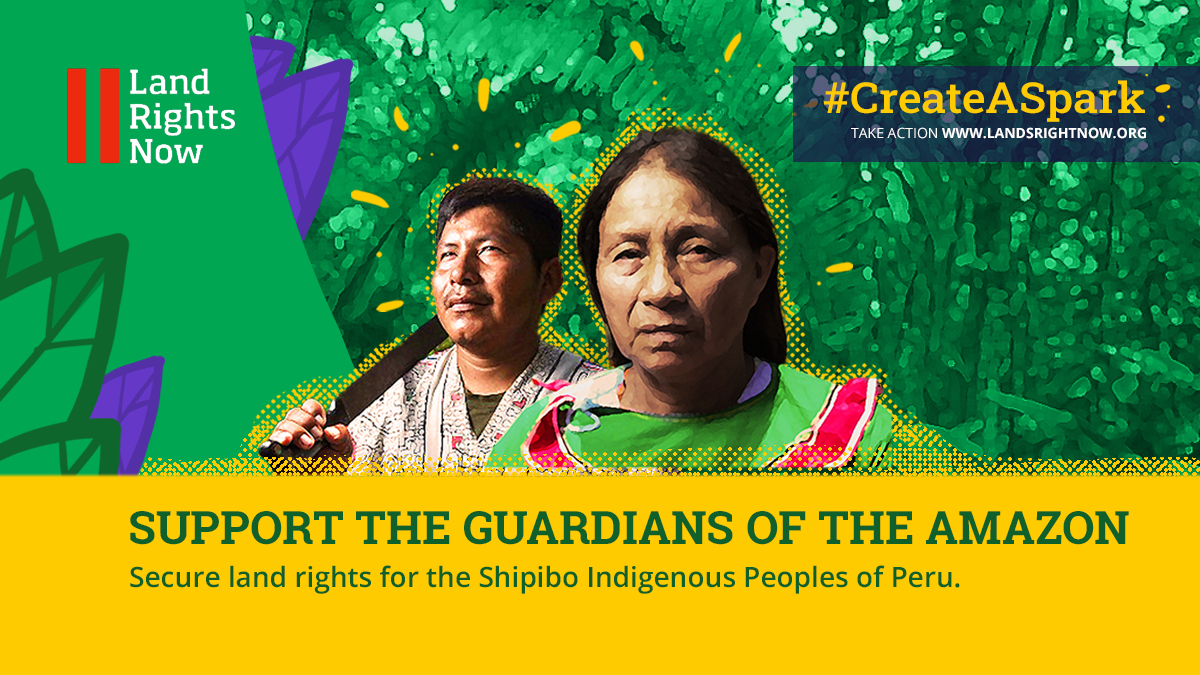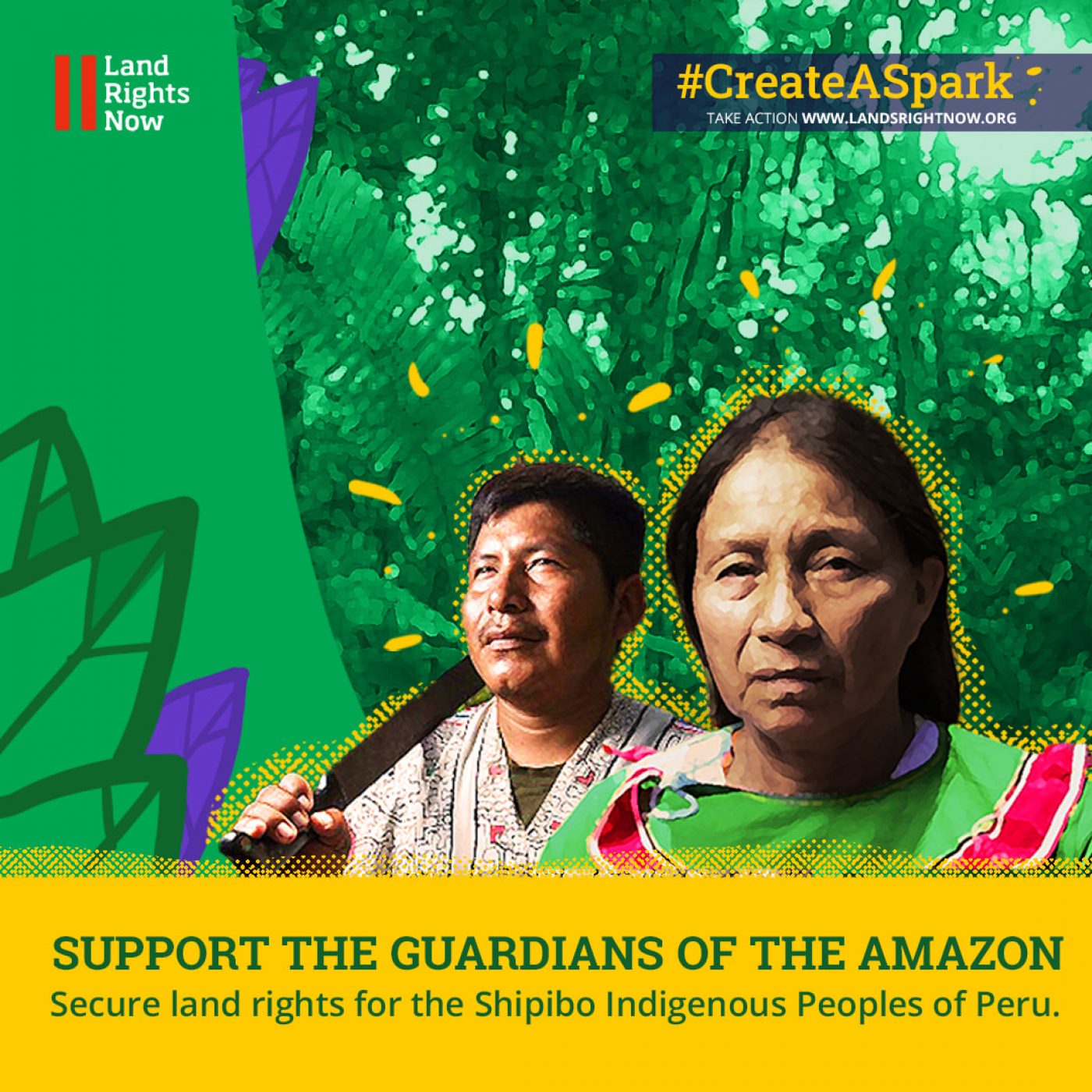“Our community is a forest island surrounded by a sea of palm oil and armed land dealers.” – Carlos Hoyos Soria, community member of Santa Clara de Uchunya
Santa Clara de Uchunya is a Shipibo-Conibo Indigenous community in the Peruvian Amazon that has been defending their land for over eight years from a large global oil palm company. Since 2012, their land has been parceled out and handed over to land traffickers who, with the endorsement of the Regional Government, sold them to the company. It was not long before the company destroyed large parts of pristine Amazon rainforest.
When the community protested against the dispossession of their forests and rivers – the very source of their livelihoods – they were the victims of death threats and attacks. But they remain firm in their defense of their ancestral land. They are currently waiting for the decision of the Constitutional Court regarding the recovery of 7,000 hectares of their ancestral territory.
The company Plantaciones de Pucallpa (now Ocho Sur P) was a member of the Roundtable on Sustainable Palm Oil (RSPO). The owners of Plantaciones de Pucallpa organized an auction and the plantations were acquired by Ocho Sur P, a company linked to Peruvian Palm Holdings Ltd, a complex network of foreign companies that has been used to evade local due diligence.
Despite orders issued by the Ministry of Agriculture and the Ministry of the Environment to stop operations for the illegal logging of forests, and the RSPO, which issued an order to suspend operations while the formal complaint by the community was resolved, the company continued to cut down the forest and plant palm oil.
Not even the outbreak of the COVID-19 pandemic caused Ocho Sur P to stop its operations. In June 2020, following warnings about poor occupational health and safety practices, a medical team was sent to the oil palm plantation to test workers for COVID-19. Of those analyzed, 90% tested positive, which led to a series of criminal and administrative complaints against the company.
Caring for forests and planetary health
The case of Santa Clara Uchunya – dispossession of land that is then deforested and converted into a large plantations with monocultures like palm oil – is repeated in Indigenous communities across the Peruvian Amazon. Companies like Ocho Sur P are able to take advantage of the Peruvian government’s unwillingness to grant legal titles to collective lands of Indigenous Peoples.
The relationship of the Shipibo people with the environment is based on a vision of balance and dependence on nature.
“The forest is our family… We as, Indigenous People, cannot live without the forest because our market is there, there we hunt, there we find our medicine, our handicraft is there. We live from that. That is why we will never stop protecting our forests.” Luisa Mori Gonzáles, community member of Santa Clara
Forests are also the source of traditional medicines. In the case of the community of Santa Clara de Uchunya, the illegal fences installed by the company have limited their access to herbs that are a key to building their immune systems during the global pandemic.
“The company has eliminated our medicinal plants, our clinic, where are we going to go to find a remedy now in times of pandemic?” Community member of Santa Clara
A Constitutional Court ruling
Santa Clara de Uchunya’s struggle has been long and persistent but a victory may be imminent.
In 2016 the community filed a lawsuit against the invasion and illegal trafficking of land in their territory and are now waiting for the Constitutional Court’s ruling. If it rules in favor – they will recover 7,000 hectares of forest.
“Our community has not lost hope and we now trust that the highest court in our country will defend our rights and order the government to give us back our lands and reclaim our forests.” – Carlos Hoyos Soria
A ruling in favor of the community would also set an important legal precedent that would help indigenous communities in the Peruvian Amazon secure their land rights and protect the Amazon from further destruction.
Help save the Amazon, sign the petition here.




